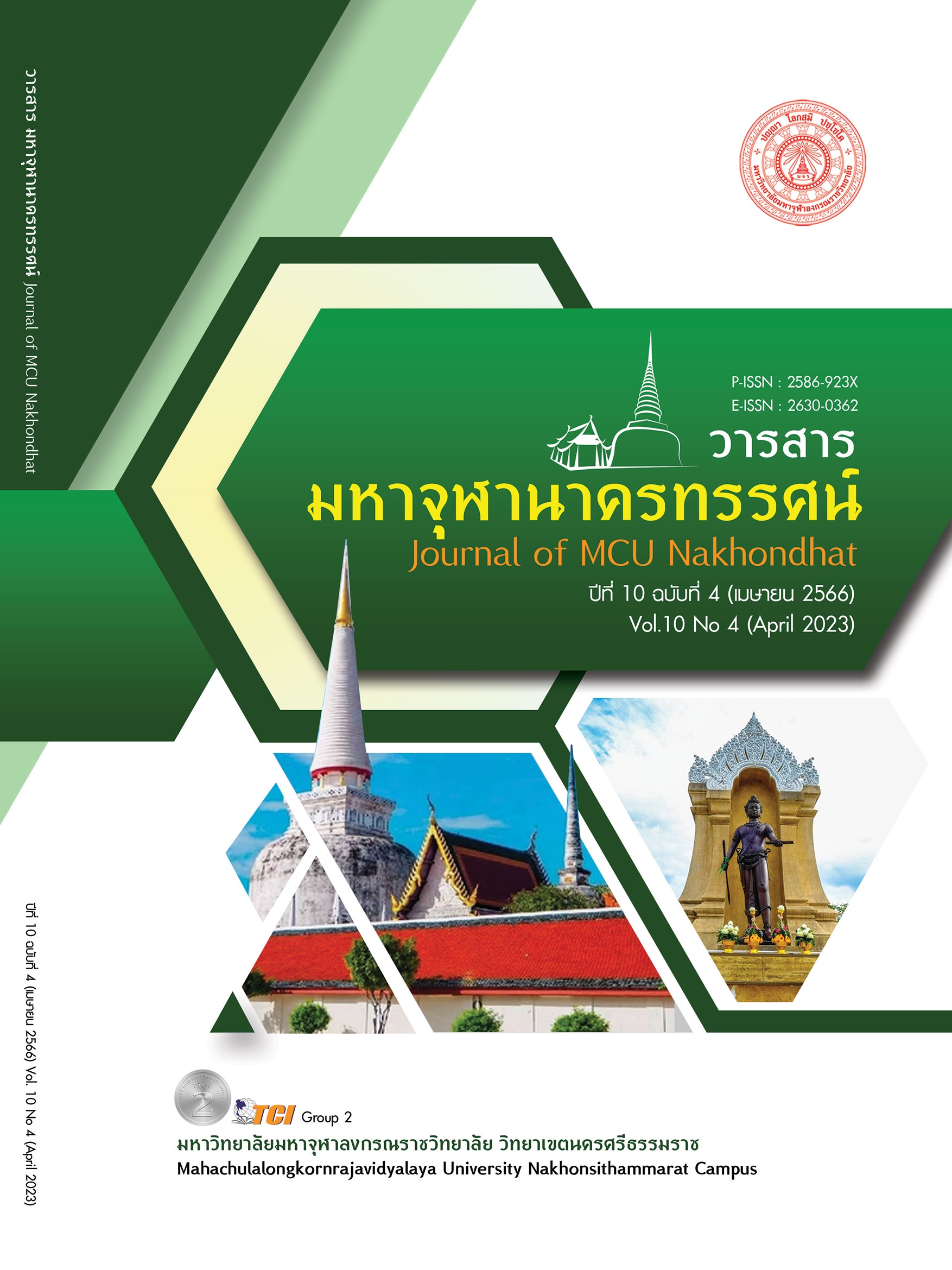LEGAL ISSUE CONCERNING THE MILITARY JUDGES
Main Article Content
Abstract
The objective of this article is to study the legal issues concerning military judges under the organization of military courts act B.E. 2498 and related regulations in Thailand. The research method involves a document-based study by collecting information on the subject matter from both Thai and foreign sources. The study focuses on examining the relevant laws, regulations, textbooks, and articles in Thai, to compare the approach of Thailand with that of other countries in terms of military courts problems. The purpose of the study is to identify the causes of the credibility issues of military courts and to propose recommendations for improving their qualifications and future developments. The research found that the military judges in Thailand have legal issues related to military jurisdiction, such as the reasons and necessity military courts, the inappropriate jurisdiction of military courts, the insufficiency of the criteria for selecting military judges, and the lack of independence of military judges because military judges are public servants under the ministry of defense, and this status creates issues concerning the independence of military courts. The researchers, therefore, recommend revising some articles of the regulations to ensure that they conform to legal principles and promote the principles of dividing powers and maintaining a balance of powers between the judiciary, executive, and independent of the judiciary. Thus, the military court can improve the protection of rights of the people and the justice standard comparable to the court of justice.
Article Details

This work is licensed under a Creative Commons Attribution-NonCommercial-NoDerivatives 4.0 International License.
References
โฮเซ ไซตูน. (2550). หลักการสากลว่าด้วยความเป็นอิสระและความรับผิดชอบต่อสังคมของผู้พิพากษา ทนายความและอัยการ : แนวทางสำหรับนักปฏิบัติลำดับที่ 1 ใน สมชาย หอมลออ. ความเป็นอิสระ. (23). เจนีวา: International Commission of Jurists .
ถาวร เกียรติทับทิว. (2546). หลักการแบ่งแยกอำนาจและความสัมพันธ์ขององค์กรที่ใช้อำนาจอธิปไตยตามแนวคิดของมองเตสกิเออ. วารสารพัฒนบริหารศาสตร์, 43(3), 155-185.
ทวีป มหาสิงห์. (2563). การก่อรูป “ทฤษฎีความยุติธรรม” ของจอห์น รอลส. วารสารรัฐศาสตร์และรัฐประศาสนศาสตร์, 11(ฉบับเพิ่มเติม). 11-17.
พระราชบัญญัติธรรมนูญศาลทหาร. (2498). ราชกิจจานุเบกษา เล่มที่ 72 ตอนที่ 83 หน้าที่ 1415 (18 ตุลาคม 2498).
ภาคภูมิ โกกะอินทร์. (2549). หลักความเสมอภาคในระบบกฎหมายไทย. ใน วิทยานิพนธ์ นิติศาสตรมหาบัณฑิต คณะนิติศาสตร์. มหาวิทยาลัยธรรมศาสตร์.
ม.ล. ชาญโชติ ชมพูนุท. (2556). ทฤษฎีสัญญาประชาคม. เรียกใช้เมื่อ 5 พฤศจิกายน 2565 จาก http://www.thaiihdc.org/web/index.php?option=com_content&view =article&id=424:556-06-10-05-19-41&catid=4:2557-06-25-06-55-40&Itemid=23
มานิตย์ จุมปา. (2550). ความรู้เบื้องต้นเกี่ยวกับรัฐธรรมนูญแห่งราชอาณาจักรไทย. (พิมพ์ครั้งที่ 1). กรุงเทพมหานคร: บริษัท วี. พริ้นท์ (1991) จำกัด).
ฤทธิภัฏ กัลป์ยาณภัทรศิษฏ์. (2559). การถ่วงดุลและตรวจสอบฝ่ายตุลาการในระบบกฎหมายไทย. ใน ดุษฎีนิพนธ์นิติศาสตรดุษฎีบัณฑิต สาขานิติศาสตร์. มหาวิทยาลัยธรรมศาสตร์.
Office of the High Commissioner for Human Rights. (2003). in cooperation with the International Bar Association, Professional Training Series No.9: Human Rights in the Administration of Justice A Manual on Human Rights for Judges, Prosecutors and Lawyers. Retrieved January 26, 2023, from https://www.ohchr.org/sites/default/files/Documents /Publications/training9Titleen.pdf


